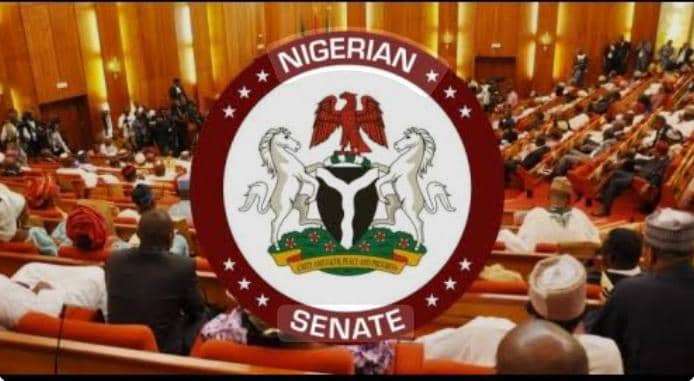The Nigerian Senate has taken a significant step toward boosting the country’s automotive industry with a new legislative push.
Diaspora Digital Media (DDM) reports that a bill requiring government agencies to prioritize Nigerian-made vehicles has passed its second reading.
The bill, titled “Local Automotive Industry Patronage Bill, 2025,” is sponsored by Senator Patrick Ndubueze of Imo North.
The lawmaker introduced the bill in October 2024, aiming to promote indigenous vehicle production and reduce foreign dependence.
During the debate, Senator Ndubueze lamented Nigeria’s reliance on imported cars, warning that it harms the naira and domestic industries.
He stressed that economic development requires local production policies that favor domestic industries and reduce importation.
Ndubueze argued that embracing local manufacturing will not only create jobs but also strengthen the national economy and boost exports.
He criticized the neglect of local brands and the glorification of imported products that offer no superior value.
According to him, Nigeria’s failure to support indigenous manufacturers worsens inflation and accelerates the naira’s decline.
Despite the issuance of 54 automotive manufacturing licenses in Nigeria, only six firms remain active.
Ndubueze blamed this on foreign exchange constraints and inadequate infrastructure, which have driven some firms to relocate to Ghana.
He questioned the rationale behind Nigeria’s continued preference for foreign vehicles despite the government’s purchasing power.
The senator proposed that 75% of all government vehicles should be locally manufactured, not merely assembled in Nigeria.
He emphasized that this policy would be a vital move toward economic revival and national self-reliance.
Ndubueze further recommended strict eligibility standards for local manufacturers to qualify for government patronage.
According to the bill, only firms with a 70% Nigerian workforce and 75% local R&D spending would be recognized.
Qualified companies must also possess advanced technologies like robotic painting and electrophoresis systems.
He referenced the early policies of China, India, and Malaysia, which banned imported vehicles to build their own car industries.
These countries, he said, now export vehicles globally, including to Nigeria, often competing with locally made products.
Ndubueze insisted that government support for local industry must be seen as an economic strategy and a national security priority.
Senator Mohammed Monguno of Borno Central supported the bill, noting it would give legal strength to an existing FEC directive.
He stated that the legislation would prevent future administrations from discarding the local patronage policy at will.
Deputy Senate President Barau Jibrin presided over the session and commended the bill’s economic implications.
Jibrin highlighted that the bill would help revive the automotive industry and empower Nigerian engineers.
He expressed hope that the president would speedily assent to the bill once passed by the National Assembly.
The bill has now been referred to the Senate Committee on Public Procurement for detailed review and recommendations.
A report from the committee is expected within four weeks, bringing the bill closer to becoming law.
If enacted, the legislation could transform Nigeria’s auto industry and serve as a model for other sectors.
Critics, however, caution that without improved infrastructure and policy consistency, the bill’s goals may fall short.
Concerns have also been raised about whether local manufacturers can meet the demand and quality expected of public vehicles.
Others warn that unless the government addresses corruption and procurement fraud, the policy could be easily bypassed.
Still, the Senate’s renewed focus on local industry signals a shift toward economic nationalism and long-term planning.
Observers believe that protecting the local car industry could create thousands of jobs and reduce capital flight.
Economists note that reducing imports, especially in high-spend sectors like government procurement, can stabilize the naira.
For now, the bill remains under legislative scrutiny, but it marks a bold move toward redefining Nigeria’s economic priorities.
Diaspora Digital Media (DDM) will continue to monitor the progress of the bill as it moves through the legislative process.







